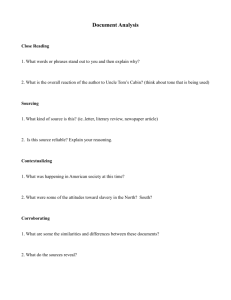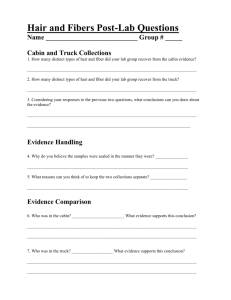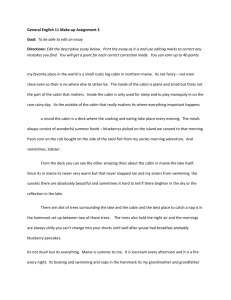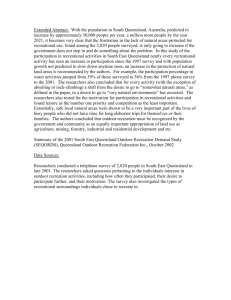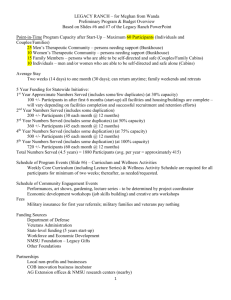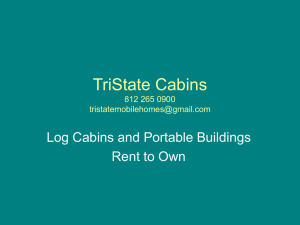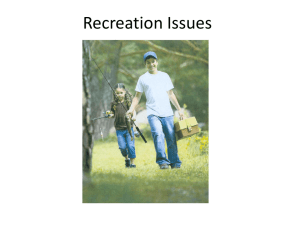Public Engagement Workbook
advertisement
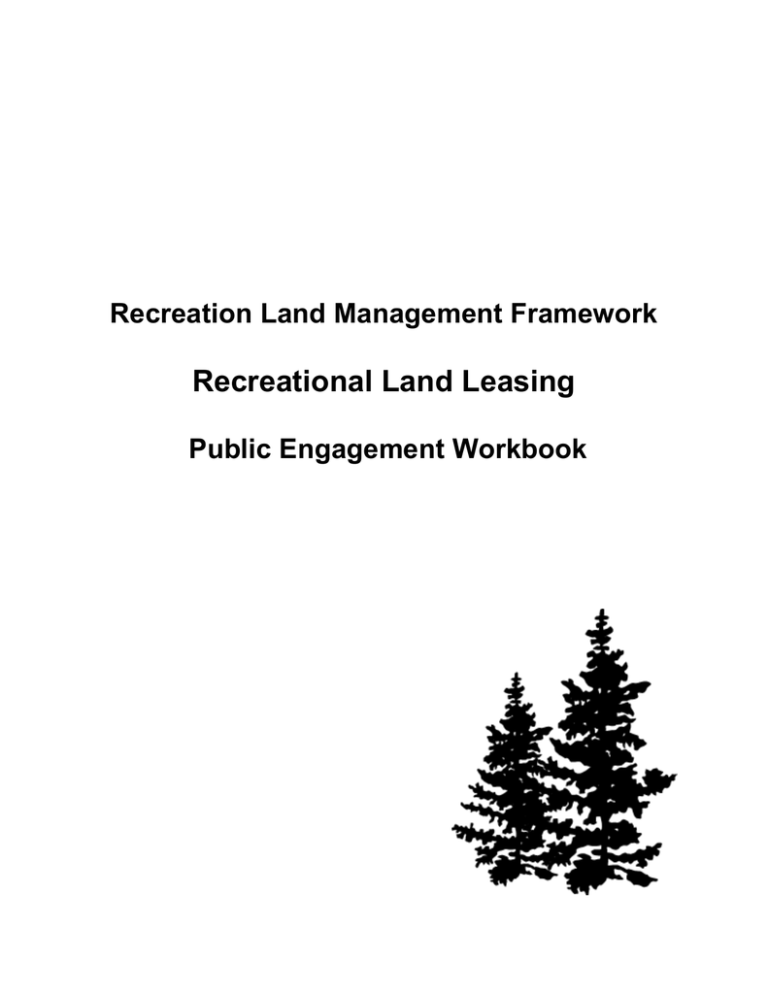
Recreation Land Management Framework Recreational Land Leasing Public Engagement Workbook Toward a NWT Recreational Land Management Framework Introduction Pressure is increasing on our land and water resources to accommodate all types of rural outdoor recreation uses. But the availability of good quality easily accessible opportunities is limited since many of the ‘best areas’ are already used or allocated for other uses. Outdoor recreation is an activity / industry based on high quality natural resources. Lose the resource and you lose the opportunity. As land and water resources cannot be all things to all people trade-offs are often necessary. For northerners land is life. We have deep social, cultural, spiritual and economic ties to the land. It is our past and our future. The Department of Lands is responsible for developing, administering and enforcing public land-use and management policies across the Northwest Territories. As part of its mandate the Department was tasked with developing a Recreational Land Management Framework which would guide and support decision making for recreational land use so northerners can access and utilize the land in a fair, transparent, consistent and responsible manner. Developing a Framework will take time and resources. Many things need to be considered, for example, how can demand and supply issues be resolved? How can various land-uses be accommodated? What environmental, economic, social and cultural factors need to be considered? Who is responsible for what and how can these responsibilities best be communicated, enforced, and reported? As all land-use problems cannot be resolved immediately priorities had to be established. The first priority is to update historic land leasing practices inherited through the devolution process. While primarily an internal activity the public will have opportunities to review and comment on policies and practices developed by the Department. The second priority is to develop options for identifying, planning and managing lands to meet the increasing demand for outdoor recreation opportunities including cabin lots. The combined product of these two activities will give northerners a clear picture of what the future of outdoor recreation and cabin development could realistically look like keeping in mind various environmental, economic, social, and legal opportunities and constraints. Your input at this early stage is critical. Our natural resources need to accommodate changing demands and forces (e.g. climate change). New management practices need to be considered and implemented for if as the GNWT Land Use and Sustainability Framework states “Land is life. It is the key to the future”. Question Picture yourself living in the NWT 10 years from now. In that picture, what could the future of outdoor recreation look like and how or could a cabin fit into your picture? What things could threaten your picture? Why we are asking this question: Simply changing existing management processes is not enough. We need a broader and clearer picture of what you want the future of outdoor recreation to look like. We need to understand why people want rural recreation experiences (with or without a cabin), how these experiences can be better planned and linked together, and what things could threaten your picture. Having trouble getting started? Consider how these statements make you feel. What are your views? I want my children and my children’s children to enjoy . . . I do not need a cabin to enjoy . . . . Having a cabin would allow me to . . . Too much development around a lake would . . . My preferred future looks like . . . Question A critical part of the RLMF is to determine if, where and how additional cabin areas could be developed. If new areas were developed, what factors should be considered in order to minimize environmental impacts while maximizing social and other benefits? Why we are asking this question: There are many ways to plan and develop future areas for cabins. As demand increases and supply decreases, we need to rethink how and where future cabin development is allowed and what ‘shape’ it could take. Having trouble getting started? Consider how these statements make you feel. What are your views? The first and only priority is environmental protection. All new cabin development should be in planned sub-divisions. We need more recreational lots, even if it means we have closer neighbours I do not want a lot where I can hear or see other people. I think it is important to consider . . . Question If new leases were made available, what would be the best way to issue them so everyone has a fair and equal chance? Why we are asking this question: Future leasing practices must be clear, consistent and well communicated so everyone has the same understanding and a fair chance. Having trouble getting started? Consider how these statements make you feel. What are your views? I applied 3 years ago and still have not gotten a lease, I should get mine first. Those who can afford it should get first pick. A lottery system gives everyone the same chance but I may not get the lot I want. The best way to issue future leases is . . . Question What factors should be considered when pricing future leases? What are some options for paying your annual fees? Why we asking this question We would like to know if we should consider differences in lot size, location, ease of accessibility and so on when establishing annual lease fees. Additionally would it be easier to pay the annual fees monthly, semi-annually or as a single payment. Having trouble getting started? Consider how these statements make you feel. What are your views? Why should I pay the same price for a remote, backcountry site as someone close to the highway with easy access? I would be willing to pay more for a lot if my site was . . . I would like the option to pay my annual payment . . . . I think lease prices should reflect . . . Question What kinds of rules and responsibilities should be established to protect the environment and allow people to enjoy their recreation and/or cabin experience? Why we are asking this question: A set of rules/responsibilities are needed to protect the environment, other people and yourself. Unfortunately, not everyone plays by the rules which means some type of enforcement needs to be in place. We could make hundreds of rules and regulations but which ones really make sense to you and how could they be reasonably and economically enforced? Having trouble getting started? Consider how these statements make you feel. What are your views? My cabin is in the backwoods, who cares if I throw my garbage out the front door. All cabins need to have a septic system or enviro-friendly toilets. Noise curfews past 10 p.m. need to be enforced by Lands inspectors. People without valid leases should be . . . We need rules to . . . and they should be enforced by . . . Looking for more information or want to provide more input? Visit: www.lands.gov.nt.ca Or http://www.lands.gov.nt.ca/recreational-land-management E-mail comments to: RLMF@gov.nt.ca Mail: Department of Lands C/O Land Use and Sustainability Division P.O. Box 1320 Yellowknife, NWT X1A 2L9 Workbooks can also be dropped off at your local Lands Regional Office Please provide your comments by: March 16th, 2015

